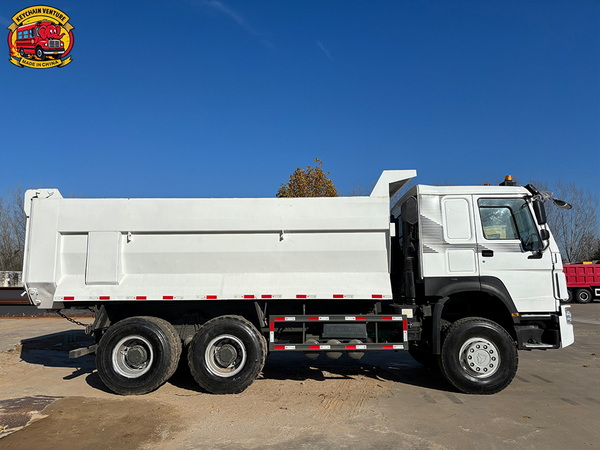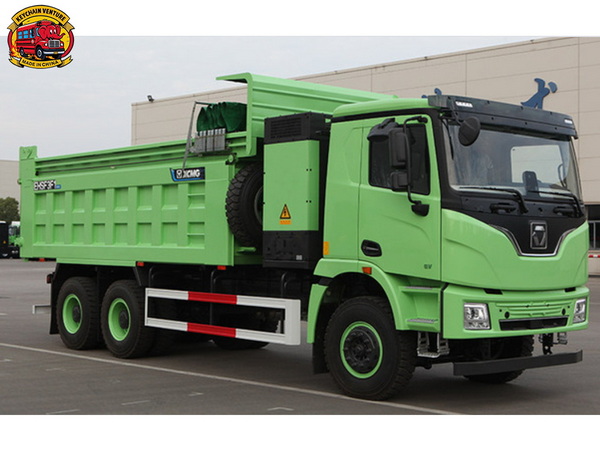Views: 222 Author: Amanda Publish Time: 2025-10-18 Origin: Site








Content Menu
● What Is a Dump Truck and Why Use It for Dirt Transport?
>> Advantages of Using Dump Trucks for Dirt Transport
● Factors Affecting the Cost of a Dump Truck Load of Dirt
>> Quantity of Dirt (Volume and Weight)
>> Type of Dirt
>> Location and Delivery Distance
>> Season and Demand Fluctuations
● Average Price Ranges for a Dump Truck Load of Dirt
● Types of Dump Trucks Used for Dirt Delivery
● How to Estimate Your Total Cost for a Dump Truck Load of Dirt
>> Select Suitable Dump Truck Size
>> Calculate Transportation Distance
● Additional Considerations for Dump Truck Dirt Delivery
>> Dirt Quality and Composition
>> Environmental and Legal Regulations
>> Renting vs Hiring Dump Trucks
● Frequently Asked Questions (FAQ)
>> 1. How much dirt can a standard dump truck carry?
>> 2. What types of dirt are most commonly delivered by dump trucks?
>> 3. Can I rent a dump truck and haul dirt myself?
>> 4. How soon can I expect my dirt delivery?
>> 5. Are there any regulations I should be aware of when dumping dirt?
When undertaking construction, landscaping, or agricultural projects, one of the most common needs is acquiring earth materials like dirt. A popular choice for transporting such materials is a dump truck load of dirt. But how much does it cost to get a dump truck load of dirt? This comprehensive article explores the factors influencing the cost, types of dump trucks, average pricing, and practical advice to help you estimate your budget efficiently.

A dump truck is a heavy-duty vehicle designed to transport loose materials such as sand, gravel, demolition waste, and dirt. Its hydraulic system allows the truck bed to tilt and dump its contents quickly. These trucks come in various sizes and capacities, serving diverse industries.
Dump trucks are preferred for dirt delivery because they:
- Can carry large volumes in one trip, reducing total delivery times.
- Are equipped to handle heavy and loose materials without spillage.
- Allow easy unloading on-site via hydraulic tilting beds.
- Come in different configurations matching terrain and project scale.
Determining how much a dump truck load of dirt costs depends on several variables:
The cost largely depends on the amount of dirt you need. Dump trucks usually haul between 10 and 20 cubic yards per load. Weight varies by soil type; moist clay weighs more than sandy soil. Pricing may be by volume (cubic yards) or by weight (tons).
Pricing varies based on dirt type:
- Topsoil: Often priced higher due to nutrient value.
- Fill Dirt: Dirt used to level or raise ground, less expensive.
- Clay Soil: Heavy and dense, transportation costs may vary.
- Sandy Dirt: Easier to move, sometimes cheaper.
Additional services like screened or enriched soil could also add to costs.
The nearer the supplier to your job site, the lower the hauling cost. Delivery fees increase with distance, fuel prices, and time taken for the delivery route. Urban areas sometimes impose additional fees related to congestion or permits.
Smaller dump trucks cost less to rent or hire, but require more trips for large volumes. Larger trucks such as tri-axle or articulated dump trucks maximize volume but have higher operating costs needing specialized roads and permits.
Construction activity affects availability and price. During peak seasons or emergencies (e.g., after natural disasters), prices can rise. Off-season or advance bookings can secure better rates.
Though prices vary by region and supplier, approximate costs per dump truck load are:
- Fill Dirt: $100 - $300 per load
- Topsoil: $150 - $350 per load
- Clay: $120 - $330 per load
- Sandy Dirt: $130 - $340 per load
Additional charges may include delivery fees, permit costs, or unloading labor. Always request detailed quotes.

The most common variety, suited for general deliveries on paved roads and moderate distances. Capacity typically ranges 10-14 cubic yards.
Ideal for off-road and rugged terrain such as mining or large construction sites. These trucks have a pivot joint allowing better maneuverability.
Composed of a tractor pulling a separate trailer bed, expanding load capacity for bulk deliveries.
Features a tilting bed that unloads material sideways, useful in tight or narrow job sites needing fast unloading.
Built for heavy-duty hauling in construction, quarrying, and mining with large volumes (up to 40 tons).
Measure the volume of dirt required by your project—length × width × depth = cubic yards.
Match the required volume to the truck size and capacity that fits your site conditions.
Determine the haul distance from the supplier's dirt source to your project location for fuel and time costs.
Contact multiple suppliers to compare prices including delivery and extra fees.
Consider unloading labor, permits, soil testing, or site preparation fees.
Not all dirt types are interchangeable. For landscaping, topsoil with organic content is preferred. For construction fill, more affordable fill dirt works well. Verify the quality before ordering.
Some municipalities restrict types of soil dumped in specific areas. Always check with local authorities to avoid fines or project delays.
If your project requires frequent deliveries, hiring a trucking company may be more practical than renting a vehicle to operate yourself, which requires experience and licensing.
Plan your dirt delivery during daylight and avoid busy traffic hours to minimize waiting times and delay penalties.
Some projects produce excess dirt that can be recycled on-site or sold, reducing waste and transportation costs.
Estimating the cost of a dump truck load of dirt hinges on several interconnected factors such as the type of dirt, quantity, delivery distance, and type of dump truck used. Understanding these elements allows you to make informed decisions and optimize your budget. Dump trucks remain the most efficient and reliable method for transporting dirt to your construction or landscaping project, especially when considering the versatility of truck types and delivery options available.

A typical standard dump truck can carry between 10 and 14 cubic yards, depending on model and weight regulations.
Common types include topsoil, fill dirt, clay, and sandy dirt, each serving different construction or landscaping purposes.
Yes, rental companies offer dump trucks, but you must have the necessary licenses, experience, and insurance to operate them safely.
Delivery time usually ranges from the same day to a couple of days after booking, depending on supplier availability and location.
Yes. Many areas require permits for dumping dirt to prevent environmental damage or illegal disposal. Always check local laws.